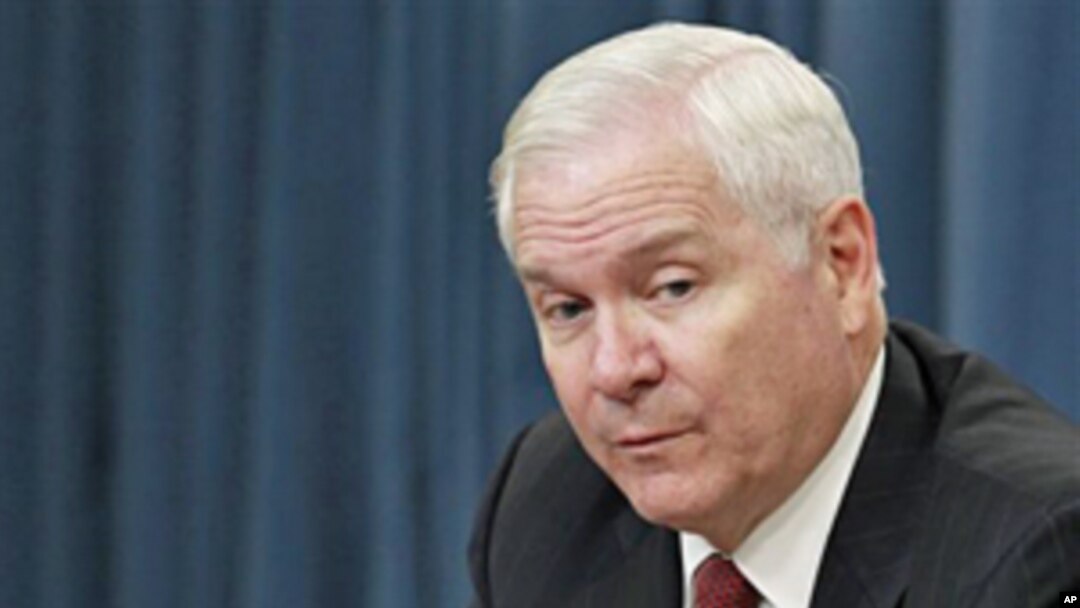U.S. Defense Secretary Robert Gates says without faster-than-expected growth in his department’s budget in the coming years, the United States will have to reduce the size of its Army by 27,000 soldiers by the year 2015. But Gates says the Army will still be larger than it was when he took office four years ago.
Secretary Gates announced that his staff has found $150 billion in savings over the next five years, which will be plowed back into the budget to fund cost increases and provide money to start new projects. Cuts include a new amphibious landing craft for the Marine Corps and the Corp’s version of the new U.S. fighter jet.
The cuts will free up money for new investments, including an Air Force plan to re-start development of a long-range bomber with conventional and nuclear bombs capable of penetrating hardened facilities, an Army plan to buy more high technology surveillance and communications gear and Navy plans to buy more ships, fighter jets and unmanned aircraft.
But even with the savings, Secretary Gates says unless the Defense Department’s budget grows more than expected during the coming years of budget austerity, the U.S. Army will have to shrink by 27,000 in 2015, on top of the 22,000 reduction already planned and an expected reduction of 15,000-20,000 in the U.S. Marine Corps.
Still, even if those cuts happen five years from now, Gates says the active duty U.S. military will be 40,000 troops larger than it was in 2006, at about 1.4 million people, with another million in National Guard and Reserve units. And he notes that the U.S. and allied combat role in Afghanistan is supposed to end in 2014.
The secretary’s plan for three years of minimal budget growth followed by two years of zero growth is an effort to forestall deeper defense cuts advocated by some members of the new Congress, and also to avoid having the Congress fund some expensive programs he does not want. Gates set out on his budget tightening effort nine months ago, in order to find money within his huge $530-billion budget to enable key areas to continue to grow in spite of the economic recession and the U.S. government’s budget deficit.
“The objective was, by cutting overhead to ensure that the investment accounts, force structure and taking care of our people - that part of the budget - would in fact grow at two to three percent," said Robert Gates.
Gates also said the “global reach and striking power” of the U.S. military will continue to far outstrip any potential adversaries.
“We confront the problems that we have in Iran and in North Korea," he said. "We obviously have very ambitious military programs in both China and Russia, and modernization programs. The defense of the Republic is one very unambiguous responsibility of the federal government, and we face a very complex world.”
Gates called his budget proposal “reasonable, responsible and sustainable” and said it represents the minimum necessary to protect the nation from global threats. The defense department can implement some of the plan on its own, but many proposals will need congressional approval - a process that is always lengthy and contentious.


